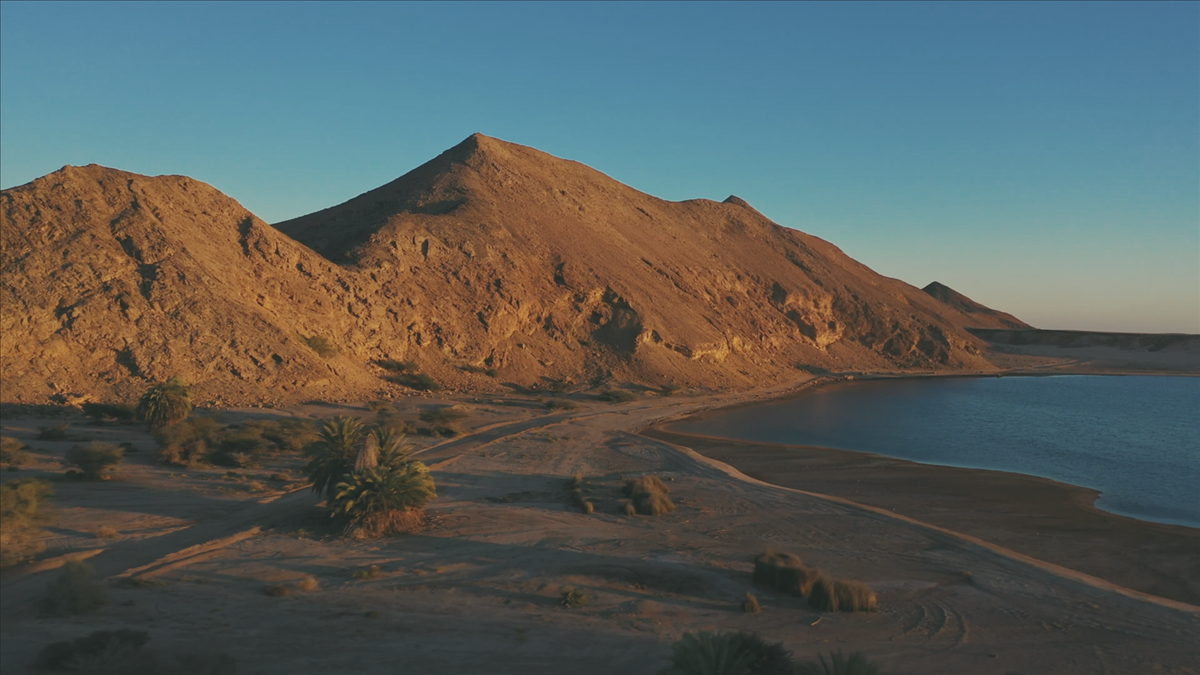
The Egyptian resort town of Sharm el-Sheikh recently hosted COP27, where the dominant theme in a packed conference program was the serious threat posed by climate change to people’s livelihoods and ecosystems around the world – and how to mitigate it. What can be done for
Two ambitious and regenerative destinations dedicated to this mitigation are the Red Sea and Amala, both being developed by Red Sea Global on the west coast of Saudi Arabia.
Ninety islands, a mountain range, and 50 dormant volcanic cones make up the diverse terrain of the Red Sea
(Red Sea Global)
Spread over 32,000 sq km along the ancient trading route of the Silk Road, these new destinations will embrace a concept of luxury travel and wellness inspired by the purity of the Red Sea. Luxury travel and sustainability haven’t always been the most obvious bedfellows. But Red Sea and Amala offer an integrated approach to experiences of travel, culture, art, sea, sand and sports.
natural landscape
With 90 islands, a mountain range, extensive desert dunes and 50 dormant volcanic cones, the Red Sea surrounds the Al Waj Lagoon, which is home to the world’s fourth largest coral reef system. The Red Sea is a paradisiacal intersection of land and sea, steeped in a rich history of exploration.
The first phase of the development, to be completed by the end of 2024, will include 16 hotels, over 1,000 residential properties and an 18-hole championship golf course. The Red Sea is set to welcome its first visitors in 2023, when the first hotels open, including Nujuma, a Ritz Carlton Reserve, Six Senses Southern Dunes, The Red Sea and The St. Regis Red Sea Resort.
Six Senses Southern Dunes, The Red Sea (pictured) is set to open in 2023, as well as Nujuma, a Ritz Carlton Reserve, and The St. Regis Red Sea Resort.
(Red Sea Global)
Amala, which means “hope” in Arabic and “purity” in Sanskrit, will be the first integrated family wellness destination established to curate transformative personal journeys. There will be an emphasis on health and fitness, nutrition, beauty and personal care, with the aim of revitalizing guests and providing a path to rejuvenation.
Drawing inspiration from indigenous Bedouin tribes, with their deep respect for ancestral land and sea, the Red Sea and Amala have a world-class commitment to regeneration. The destinations have an abundance of flora and fauna and a rare natural ecosystem that is home to 280 species of fish and 314 species of coral, as well as the Arabian falcon, sooty falcon and flamingo.
Amala and the Red Sea have an abundance of flora and fauna and its waters are home to lionfish (pictured), spotted dolphins and reef sharks, among others.
(Red Sea Global)
In the Red Sea plan, nine islands were designated as conservation areas to protect wildlife. As a result, nesting sea turtles and sooty hawks have been protected on land, and in the ocean, humpback dolphins, sharks and halvi guitarfish have been protected. Saudi also has the third largest population of dugong, a species under threat worldwide due to loss of seagrass habitat. Scientists at Red Sea Global have provided them with the protection they need to thrive in the region.
continuous practice
These destinations will be exquisite sanctuaries, providing indulgent experiences, but they must also be a beacon for sustainable practices if they are to help the fight against climate change.
The 100-hectare landscape nursery will provide 25 million plants for the landscaping of the sites, playing an important role in the Saudi Green Initiative to address environmental challenges facing the world.
This passion for ecology and sustainability has been the guiding light for Red Sea Global. This is seen through its commitment to ensuring Red Sagar and Amala are powered by 100 percent renewable energy without any connection to the national grid and the pursuit of net zero once fully operational.
Red Sea Global is committed to offering emission-free electric and hydrogen transportation in its destinations. This includes e-bikes, golf buggies, cars, vans, seaplanes and boats. Light pollution is taken into account to ensure that the sky remains dark and nocturnal wildlife is not disturbed.
Light pollution will be reduced so as to maintain a stunning night sky without any hindrance to nocturnal animals
(Red Sea Global)
Red Sea Global has made decisions putting people and planet above short term profit that some developers would make. The Red Sea and Amala will limit visitors to 1 million and 500,000 respectively to avoid overtourism and protect the natural ecosystem. Similarly only one per cent of the Red Sea destination area will be developed, while only five per cent in Amala.
Whatever progress is made at COP27, Red Sea Global hopes that Red Sea and Amala will serve as shining examples of regenerative development for future projects. Respect for the environment, responsibility for their obligations to mitigate climate change, positive collaboration with their stakeholders, and a passion for making positive change for the future – these must be cornerstones of future operations if we are to safeguard future generations want to be rich. Come.
The St. Regis Red Sea Resort will open next year and will feature 90 villas, two signature restaurants, an outdoor pool, fitness center and spa, and a children’s club.
(Red Sea Global)